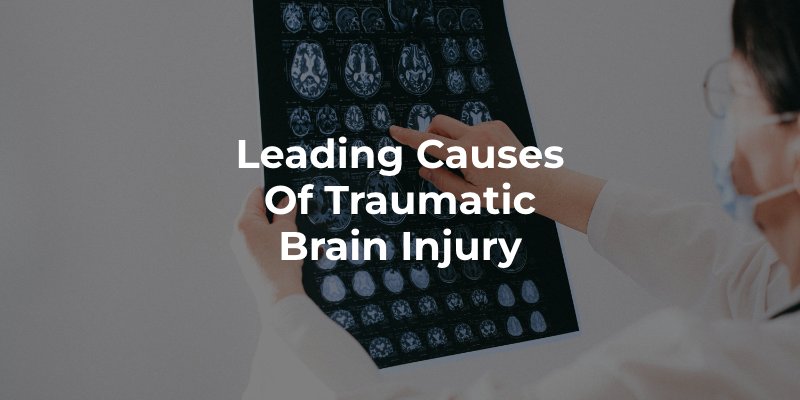Our attorneys have been assisting the Orange County and Southern California communities for over 40 years.
Brain injuries can happen after many different kinds of accidents and are surprisingly common occurrences in the United States.
According to the Centers for Disease Control and Prevention (CDC), an estimated 1.7 million Americans suffer traumatic brain injuries every year, leading to 52,000 deaths, 275,000 hospitalizations, and almost 1.5 million emergency department visits.
If you or a loved one has recently suffered a brain injury due to an accident that wasn’t their fault, contact an Orange County brain injury lawyer at DiMarco | Araujo | Montevideo today. We can provide the legal guidance that you need.
A brain injury can take on many different forms. Whether you have received a “mild” brain injury from a slip and fall accident or severe damage from a car crash, brain injuries can lead to lifelong cognitive damage, reduced motor skills, and may permanently affect your ability to work. Moreover, the outward signs of brain injuries are not always apparent, making them difficult to identify.
Always be sure to consult with a physician after suffering a blow or impact to the head to ensure that no damage has been done. Then contact our legal team for a free legal consultation about how you can recover damages.

 With over 32 years of experience, Attorney John A. Montevideo is a highly skilled personal injury and brain injury lawyer based in Orange County, CA. His practice focuses on advocating for clients who are the victims of negligence, often challenging third-party claims for individuals who have suffered catastrophic injuries or fatalities on the job.
With over 32 years of experience, Attorney John A. Montevideo is a highly skilled personal injury and brain injury lawyer based in Orange County, CA. His practice focuses on advocating for clients who are the victims of negligence, often challenging third-party claims for individuals who have suffered catastrophic injuries or fatalities on the job.
Recognized for his dedication and expertise, Mr. Montevideo holds an AV rating from Martindale-Hubbell and has received accolades such as the CAOC Presidential Award of Merit and induction into Western State University’s Hall of Fame for his exemplary career and community service.
Actively involved in various legal associations and initiatives, he serves as President of the Consumer Attorneys of California, contributes to legislative advocacy, and supports minority law students through organizations like the Diversity in Law Foundation. Mr. Montevideo and the other attorneys of DiMarco | Araujo | Montevideo are dedicated to fighting for the rights of injured citizens and workers in Orange County, California.
“Best firm I’ve ever used. Amalio is an awesome help, as well as Mr. Montevideo. They helped me through my case and I was completely satisfied.” -T.F.
Information available from the Centers for Disease Control and Prevention (CDC) states that a traumatic brain injury is an injury that affects how the brain operates and is caused by either a “bump, blow, or jolt to the head” or a penetrating injury to the head.
There are three main types of traumatic brain injuries:
Traumatic brain injuries result in thousands of deaths each year across this country. Individuals of all ages can be affected by a traumatic brain injury, and these injuries occur in a wide variety of ways.
There are several types of brain injuries, ranging from mild to severe:

Information available from the CDC shows that there are some commonalities amongst the ways that individuals sustain traumatic brain injuries. The leading causes of TBIs include:
Slip and fall incidents are common type of fall that causes traumatic brain injuries. Slip and fall incidents can occur anywhere, including a person’s own property. Often, though, slip and fall incidents occur due to the careless or negligent actions of a property owner. For example, if a grocery store neglects to clean up a spill promptly, this could lead to a slip and fall incident and cause a brain injury. Additionally, falls that occur from one level to another regularly lead to severe brain injuries. For example, a construction worker that falls off faulty scaffolding from one floor to another could sustain a severe traumatic brain injury that leads to a lifelong disability.
Firearm-related suicide incidents are the most common cause of traumatic brain injury deaths in the United States, according to the CDC.
Motor vehicle accidents often result in a range of traumatic brain injuries, including concussions and moderate to severe injuries. Motor vehicle accidents include an umbrella of types of incidents that can occur, including vehicle versus vehicle incidents, as well as accidents involving motorcyclists, bicyclists, trucks, and pedestrians.
Individuals can sustain brain injuries when they are assaulted by others. This can include domestic violence and child abuse.
Symptoms of brain injuries can manifest immediately or accumulate over time. Some common symptoms include:
These symptoms often start out mild and increase in severity as time goes on. It’s important to note, however, there is a statute of limitations in California.
Personal injury cases must be filed within two years of the discovery of the injury. Therefore, it is very important to ensure that you seek immediate treatment after a brain injury and not let symptoms develop over time.
When it comes to most brain injuries, the importance of rest cannot be overstated. Not only does healing take time, but ignoring symptoms and trying to tough through the injury can only make matters worse. Some other recommendations to help you or your loved one heal include avoiding vigorous exercise, not consuming alcohol, and staying away from activities that involve high concentration.
The Glasgow Coma Scale was developed to be a universal rating system for the severity of brain injuries and the level of consciousness for a brain injury patient. Essentially, it is used to determine the severity of a brain injury. Your score is determined by motor, verbal, and eyes’ reactions to stimuli. A score of 3-8 means severe brain injury, a score of 9-12 means moderate brain injury, and a score of 13-15 means mild brain injury.
Other scales exist, such as the Coma/Near Coma Scale (CNC) and the Coma Recovery Scale-Revised (CRS-R), but this is a reliable and effective way of determining the extent of damage following an accident.
The effects of a traumatic brain injury will vary from person to person. In general, any person who has a suspected brain injury will go to the doctor and receive a complete evaluation. A doctor will begin by asking questions about how the injury occurred and any symptoms you have had since the incident. This will typically be followed by a set of questions and tests of a person’s cognitive abilities.
There will also be various examinations for physical signs of a traumatic brain injury. This will include checking strength, balance, coordination, reflexes, and sensation. MRIs and CT scans will likely be ordered to ensure that the brain is not bruised or bleeding beneath the skull. If a person does have a suspected traumatic brain injury, doctors may ask that a person be admitted to the hospital so they can be monitored overnight or for more than one night.
It is imperative for any person who sustains a brain injury to begin treatment early. That is why our experienced brain injury lawyers strongly encourage any person who has sustained a bump or blow to the head to seek medical treatment as soon as possible. It is not uncommon for brain injury signs and symptoms to not show up right away. In some cases, these signs and symptoms do not appear until hours or even days after an injury occurs, after the damage has begun to set in.
When a person seeks medical treatment for a suspected head injury, medical care typically begins right then and there. After the initial emergency is over, a therapist may begin to work with a brain injury victim to help them improve their orientation to their surroundings. If speech has been affected, speech therapy may also be initiated. It is not uncommon for brain injury victims to have speech problems and issues with swallowing. There are various exercises that can help with this.
Long-term rehab may be needed, and this will be assessed based on a person’s injuries and needs. There are specific rehabilitation programs in place for those who have sustained brain injuries. This includes:
The goal of rehab for a traumatic brain injury victim is to reach the maximum level of independent functioning for an individual, though the final outcome will depend on the seriousness of the incident and the brain injury. Physical therapy works on restoring last skills, and in many cases, individuals have to completely relearn how to do certain things like talking and walking.
The effects of brain injury vary widely depending on several different factors. Some of the main factors that affect the severity of traumatic brain injuries include the initial severity of the injury, how quickly a person is able to receive treatment, and the effectiveness of the treatment. Mild traumatic brain injuries may only affect brain cells temporarily, and an individual may be able to recover completely. However, moderate to severe traumatic brain injuries could lead to long-term complications or even death.
As we examine these symptoms and effects of a traumatic brain injury, we want to first examine mild traumatic brain injury effects and then look at moderate to severe brain injury effects:
Those who sustain mild traumatic brain injuries are typically able to make a full recovery after a few days or a few weeks. Concussions are considered mild traumatic brain injuries. The physical symptoms associated with these injuries include headaches, nausea and vomiting, drowsiness or fatigue, speech problems, loss of balance, and more.
There are various sensory issues also associated with mild traumatic brain injuries, including blurred vision, ringing in the ears, and a sensitivity to light and sound. Those who sustain mild traumatic brain injuries may lose consciousness for a few seconds or a few minutes, and they may have temporary memory or concentration problems.
Individuals who sustain moderate to severe traumatic brain injuries will typically have far worse symptoms. In addition to all the symptoms mentioned above, the physical symptoms of a moderate to severe traumatic brain injury include a longer loss of consciousness, more severe headaches, continued nausea and vomiting, seizures or convulsions, dilation of one or both pupils, clear fluid draining from ears and nose, and more.
Individuals who sustain moderate to severe traumatic brain injuries may suffer from profound confusion, slurred speech, continuous altered mental status, a loss of speech and physical abilities, and more.
Those who sustain more severe traumatic brain injuries are less likely to be able to make a full recovery. Some progress may be possible, but it is not uncommon for individuals with these traumatic brain injuries to suffer from long-term consequences that affect them for the remainder of their lives.
Most people do not know that they are about to sustain a brain injury when one occurs. The reality is that life is unpredictable, but there are various ways that individuals can protect themselves and their loved ones to help prevent a traumatic brain injury from occurring or at least lessen the severity of the incident. Some of the best ways to prevent a traumatic brain injury include:
Not every brain injury is going to be prevented. However, anytime a person sustains a suspected bump or blow to the head, the best way to prevent major damage is to seek medical care immediately. Again, the signs and symptoms of some brain injuries do not show up right away, but that does not mean there is not significant trauma inside of the skull that is unseen.
By going to the emergency room right after a suspected injury, you allow the doctors to conduct an evaluation that can include MRIs and CT scans that see into the body to detect unseen injuries. Even though you may not be able to prevent a brain injury, it may be possible to prevent a brain injury from becoming much worse.
It is important to work with a skilled brain injury lawyer in Orange County from the very beginning of your case. The reality is that brain injury victims are often left going up against at-fault parties and aggressive insurance carriers, and this can be intimidating. However, when a brain injury lawyer begins working on your case, they will have the resources necessary to handle every aspect of the claim on your behalf. This includes, but is not limited to, the following:
Your brain injury attorney has to show that the other party was negligent in order for you to recover compensation for your losses. Negligence is defined by establishing that the other partied owed the injury victim a duty of care, that they breached this duty, and that their actions directly caused the injuries.
At DiMarco | Araujo | Montevideo, our team of skilled personal injury attorneys has over 30 years of experience and an excellent track record when it comes to traumatic brain injury cases.
A brain injury can permanently affect your quality of life and your ability to work, but our job is to obtain the compensation you need to make your life financially whole again.
Contact our qualified OC injury lawyers today at (714) 783-2205 for a free consultation.